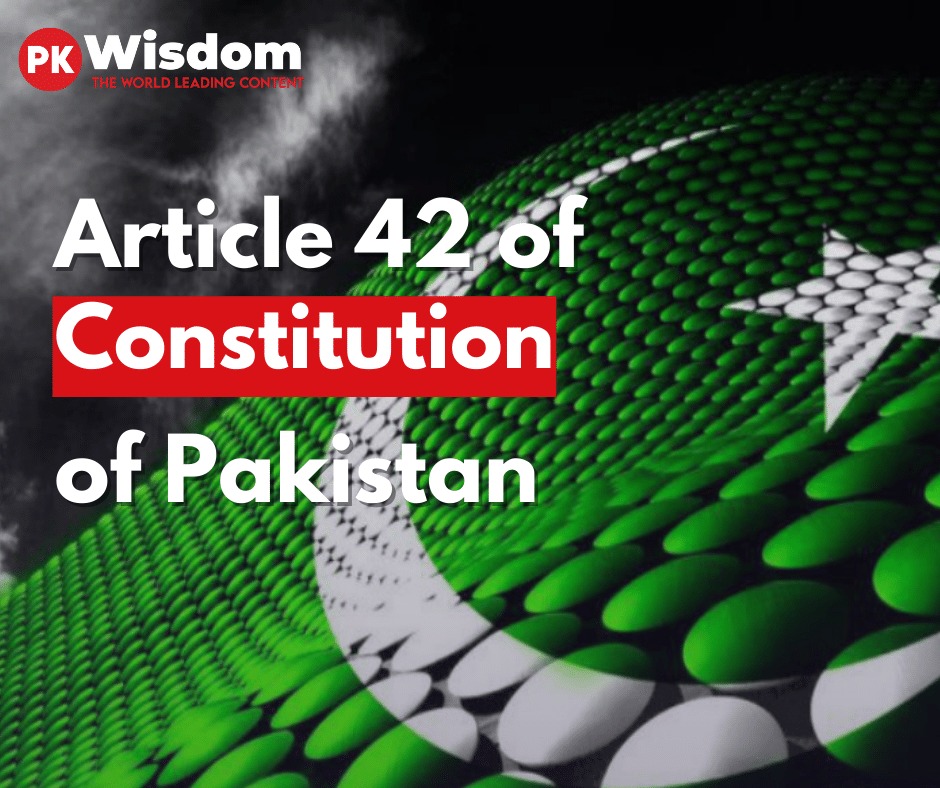Table of Contents
Overview of Article 42 of the Constitution of Pakistan
The Constitution of Pakistan, approved in 1973, serves as the supreme law of Pakistan, setting forth governance, rights, and responsibilities. Article 42 is an important provision laying out how Presidents take their oath of office – in this blog post we’ll delve deeper into its intricacies and importance within Pakistan’s constitutional landscape.
Article 42 States
42. Oath of the President
Before entering upon office, the President shall make before the Chief Justice of Pakistan oath in the form set out in the Third Schedule.
Key Points of Article 42 of the Constitution of Pakistan
To understand the significance of Article 42, let’s break it down into its core components:
- Oath Requirement: Article I mandates that President-elects take an oath before taking office to demonstrate their dedication to upholding the Constitution and fulfilling his/her responsibilities as President.
- Role of the Chief Justice: The role of Pakistan’s Chief Justice in administering an oath-taking procedure is invaluable and provides an air of solemnity and legality for this ritual.
- The Third Schedule: The exact text of an oath-taking is laid out in detail in the Third Schedule, providing uniformity and consistency in its taking process, an integral element of constitutional governance.
- Loyalty and Commitment: An oath often includes promises to uphold the Constitution of Pakistan while representing it with integrity, impartiality, and dedication in service to their nation.
Download the Constitution of Pakistan in PDF
Crux of Article 42 of the Constitution of Pakistan
Article 42 plays an indispensable role in protecting Pakistan’s constitutional order and rule of law. Here is why Article 42 should be treated with such importance:
- Preservation of Constitutional Values: When taking office, Pakistan’s President swears an oath that affirms their commitment to upholding values enshrined in Pakistan’s Constitution – including protecting citizen’s rights and liberties, promoting social justice and upholding rule of law.
- Checks and Balances: By mandating that the President take his oath before Chief Justice, the constitution provides an effective system of checks and balances which ensures even the highest office in the land adheres to its principles and the judiciary’s authority.
- Assumptions for National Unity: As head of state, the President should represent national unity by taking an oath to uphold its values despite personal or political affiliations.
- Public Accountability: Oath-taking ceremonies are public events designed to demonstrate transparency and accountability in governance, providing citizens with an opportunity to witness the President’s commitment to their welfare and that of the nation as whole.
Conclusion: Article 42 of the Constitution of Pakistan
In short, Article 42 of Pakistan’s Constitution is more than simply a formal requirement; it represents the essence of constitutional governance in Pakistan. It symbolizes President Asif Zardari’s commitment to faithfully serve and defend his nation and constitution while working for their betterment. Furthermore, Article 42 serves as a reminder that no authority, including himself or herself, are above its laws; its passage stands as evidence that Pakistan’s democracy and rule of law remain strong while assuring that those holding its highest office will always act in their best interests for their nation and people.
The 1973 Constitution of Pakistan serves as a cornerstone of governance, upholding constitutional values and principles across the land. Therefore, whether you’re studying law, a concerned citizen, or simply curious about its constitutional framework – Article 42 is an indispensable component in understanding Pakistan’s legal and political landscape.


